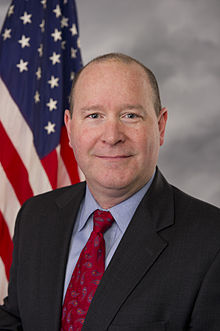|  In the politics of Washington, D.C., the clear reality that the Affordable Care Act is failing patients gets lost in the shuffle. But as millions of Americans know firsthand, the facts are simply undeniable.
Under the Affordable Care Act, 28 million Americans remain uninsured. According to data from the Department of Health and Human Services, Obamacare premiums have doubled since 2013 - an increase of 105% across the country and 74% in the state of Indiana. Across one-third of the country, patients have access to only one insurer on the Obamacare exchanges.
If a patient can’t afford insurance or can’t find a provider that offers insurance in their market, they don’t have access. Additionally, if patients lose their insurance or doctor of choice, they don’t have access. Despite the promises made and rhetoric surrounding the Affordable Care Act, that’s the reality patients are facing across the country.
In the face of these challenges, inaction would be immoral and irresponsible. The vast majority of Hoosiers agree and strongly support repealing and replacing the Affordable Care Act.
That’s why Congress has been working diligently to pass reforms to ensure every American has access to the health care they need at a cost they can afford. Recently, the House of Representatives passed the American Health Care Act (AHCA), which advances our goal of repealing and replacing Obamacare.
The AHCA delivers relief from Obamacare’s taxes and mandates that have hurt job creators, increased premiums, and limited options for patients and health care providers. It returns control of health care from Washington back to the states and restores control to patients and physicians so Americans can access quality, affordable health care options that are tailored to their needs.
In contrast, Obamacare is based on a one-size-fits-all approach that put bureaucrats in Washington in charge of your health care. As a result, this has led to higher costs, fewer choices, and less access to the care people need.
The AHCA will deliver the control and choice individuals and families need to access the care that’s right for them by providing the freedom and flexibility states, job creators, and health care providers need to deliver high-quality, affordable health care options.
Specifically, the AHCA:
- Repeals $1 trillion in Obamacare taxes that have hurt job creators, increased premium costs, and limited options for patients and health care providers—including taxes on prescription drugs, over-the counter medications, health-insurance premiums, and life-saving medical devices.
- Eliminates the government mandate penalties, which forced millions of workers, families, and job creators into expensive, Obamacare plans that they don’t want and cannot afford.
- Allows dependents to continue staying on their parents’ plan until they are 26, helping young adults access health insurance and stabilize the marketplace.
- Guarantees coverage to Americans with pre-existing conditions. Under our plan insurance companies are prohibited from denying coverage on the basis of a pre-existing condition, banned from rescinding coverage based on a pre-existing condition, and prevented from raising premiums on individuals with pre-existing conditions who maintain continuous coverage.
- Lowers premiums by allowing states to redesign their insurance markets to expand choices and promote more affordable options for consumers.
- Provides a monthly, advanceable tax credit – between $2,000 and $14,000 a year – for low- and middle-income individuals and families who don’t receive insurance through work or a government program. Americans can use this tax credit to purchase affordable, private, quality coverage of their choice.
- Enhances and expands Health Savings Accounts (HSAs)—nearly doubling the amount of money people can contribute and broadening how people can use it, so that individuals and families can spend their health care dollars the way they want.
- Establishes a $138 billion risk sharing program to provide states the flexibility to meet the unique needs of their patient populations, help low-income Americans afford health care, and provide a backstop safety net for Americans with pre-existing conditions.
- Designates $15 billion for mental health and substance abuse, which builds on the $650 million Congress recently appropriated and $500 million Congress appropriated in December 2016.
- Modernizes and strengthens Medicaid so states can better serve the patients most in need and protecting states’ ability to design programs like Healthy Indiana Plan 2.0. The Medicaid reform represents the biggest entitlement reform in a generation and puts the program on a sustainable fiscal path so Medicaid can be refocused on helping the most vulnerable.
- Eliminates taxpayer funding for abortion providers like Planned Parenthood, and increases funding for Federal Qualified Health Centers (FQHCs), which are community based, patient-centered organizations that provide health services to medically underserved individuals. FQHCs provide comprehensive medical, dental, mental health and other primary care services.
MORE >>Â Read the Bill
|





